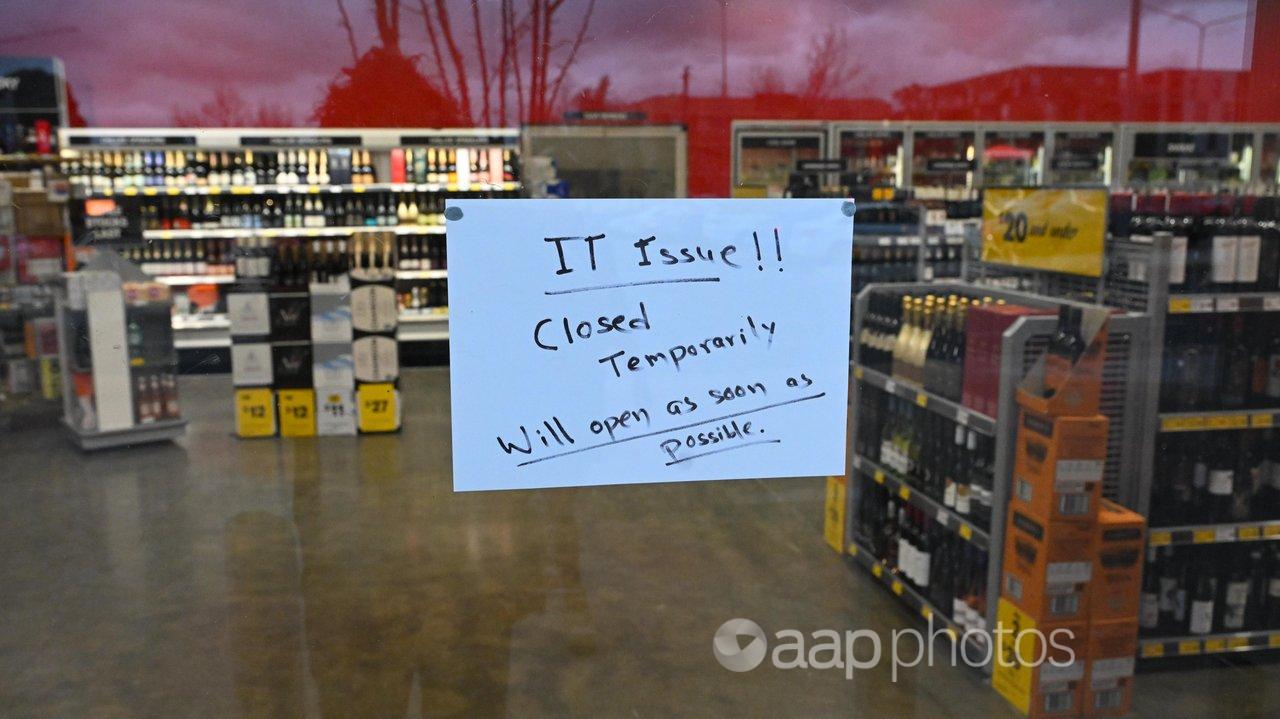Sectors affected by the global IT outages could take weeks to get back to normal, the home affairs minister has warned.
The outage, caused by major cyber security firm CrowdStrike deploying a software update, left industries ranging from banks, airlines, supermarkets, media organisations and retailers unable to operate on Friday.
Government agencies and representatives from affected sectors again gathered on Sunday for a National Co-Ordination Mechanism meeting.

Home Affairs Minister Clare O’Neil said it would be some time before all systems were operational.
“There has been a huge amount of work over this weekend to get the economy back up and running. However, it will take time until all affected sectors are completely back online,” she said in a statement after the meeting.
“In some cases we may see teething issues for one or two weeks.
“There is no impact to critical infrastructure or government services.”
Representatives from CrowdStrike told the emergency meeting they were close to rolling out an automatic fix, with Microsoft doing the same.
“This should increase the speed at which systems across the economy are back online,” Ms O’Neil said.
“Supermarkets, like many other sectors, are still experiencing issues, but the sector stressed that there are no food shortages and no need to stockpile food.”
In a blog post, Microsoft said it estimated 8.5 million devices were hit by the outage and it was working to help recovery efforts.
Assistant Energy Minister Jenny McAllister said work was ongoing between the government and sectors hit by the outage to ensure they were back up and running.
“We are still in recovery stage … there is still more work to do to make sure that the residual issues arising from this outage are able to be addressed,” she told Sky News on Sunday.
“There will be opportunity in time to reflect on what’s occurred over the last couple of days, whether it exposes vulnerabilities that we are able to address.
“The key thing at the moment, and the focus for the government, is restoring services.”
Australian Chamber of Commerce chief executive Andrew McKellar warned companies affected by Friday’s outage were unlikely to receive compensation.
“For many businesses, it’s going to be very difficult to secure direct compensation, but obviously, that’s something that should be looked at,” he told reporters in Canberra.
“If there are ways to consider how that might be evaluated, then obviously that’s something that should be on the table.
“It is a reminder, regrettably, for a lot of businesses this is going to be water under the bridge, it’s going to be a learning experience.”
Most companies affected by the outage were operational again by Saturday.
But Mr McKellar said many small businesses would still have a hard time getting systems back up on Monday.
“Its timing couldn’t have been worse on a Friday, and in particular, impacting on a Friday afternoon,” he said.
“That’s meant for many businesses, they’re going to have to wait until early next week to put in place the fixes that they need to do.”

Shadow Treasurer Angus Taylor said the incident had reinforced the concerns of having large amounts of internet systems in the hands of a few firms.
“It’s also very clear that government and businesses have got to get smarter and better at being able to deal with these situations,” he told Sky News.
“That might mean having redundancy, it might mean ensuring that you’ve got alternatives, it certainly might mean not having one organisation or one company with too much market share.”




















